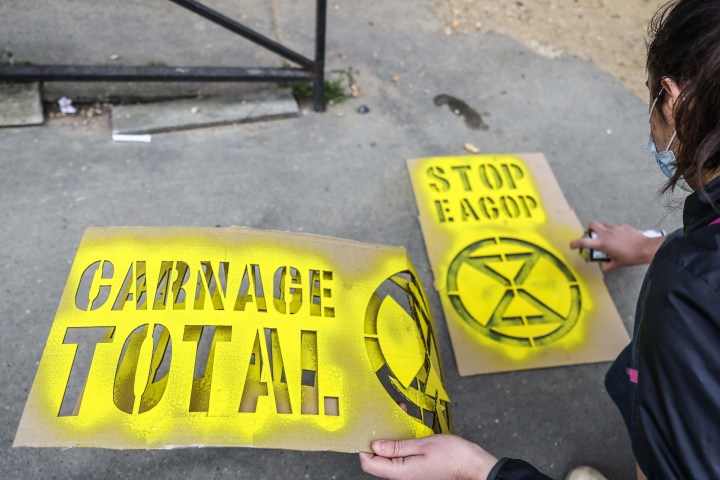East African Crude Oil Pipeline
Uganda pipeline has ‘devastated’ livelihoods, Human Rights Watch says

KAMPALA, July 10 (Reuters) - A planned oil pipeline to help Uganda export its crude to international markets has "devastated" the lives of thousands of people who have experienced delayed or inadequate compensation for their land, Human Rights Watch (HRW) said on Monday.
The rights group also said the project, in which TotalEnergies TTEF.PA has a 62% stake, is a disaster for the planet as it will add emissions that exacerbate climate change.
France’s TotalEnergies rejected HRW’s accusations, saying it was respecting all the rights of affected people.
Planned to cost $3.5 billion, the East African Crude Oil Pipeline (EACOP) will carry crude from the oilfields in Uganda’s west through Tanzania to the Indian Ocean seaport of Tanga, a length of 1,445 kilometres.
Preliminary ground work began earlier this year and the pipeline is scheduled for completion in 2025.
Those displaced by the pipeline have received inadequate compensation and multi-year delays in receiving that compensation, HRW said in a statement.
“EACOP has been a disaster for the tens of thousands who have lost the land that provided food for their families and an income to send their children to school, and who received too little compensation from TotalEnergies.”
HRW said it had conducted over 90 interviews earlier this year, including with 75 displaced families in 5 districts in Uganda.
A TotalEnergies spokesperson told Reuters the firm and its partners are committed to addressing the rights of affected people as well as the environmental and biodiversity impact of the project.
“We are doing everything to ensure it (EACOP) is a model in terms of transparency, shared prosperity, economic and social progress,” the spokesperson said, adding those affected were being relocated to nearby areas and would experience better conditions of living.
Nearly all the people affected by the project have been compensated, he said.
EACOP has already drawn criticism from clean energy advocates and other rights groups who say the project has caused mass displacement and will ruin multiple ecologically sensitive areas along its path in both countries.
These organisations have urged lenders around the world not to help fund the project and some banks have vowed not to participate in its financing.
The process to acquire land for the project, HRW added, had “caused severe financial hardships for thousands of Ugandan farmers, including heavy household debt.”
By Elias Biryabarema
(Additional reporting by Silvia Aloisi in Paris; Editing by Bhargav Acharya and Sharon Singleton)



















Comments - Please login in order to comment.